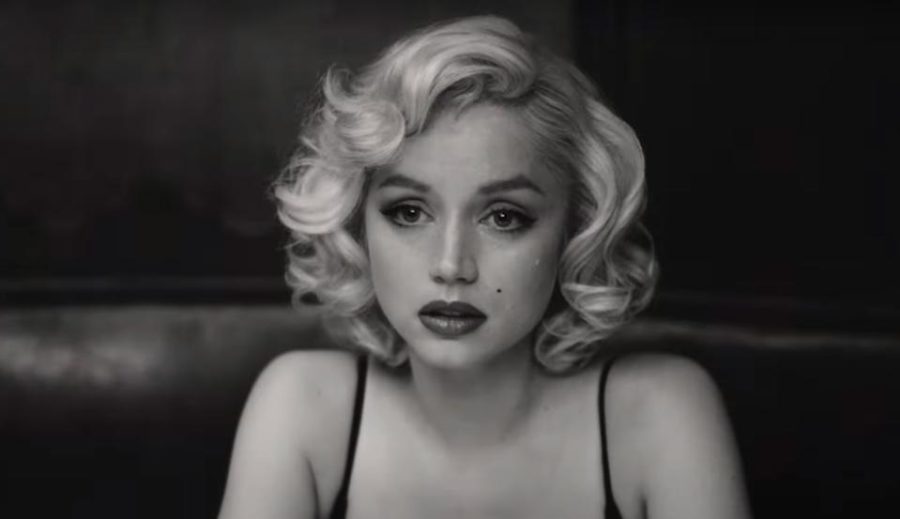“Blonde” Film Review
December 5, 2022
Summary of Film
Based on the 2000 novel by Joyce Carol Oates, Blonde is a fictionalized take on the life and career of Norma Jeane Mortenson. The film starts with Norma Jeane as a child living with her mentally ill mother, who attempts to drown her, leading to her being placed in a mental hospital and Norma, an orphanage. The film fast-forwards to Norma’s career as a pin-up model and when she adopts the name, Marilyn Monroe.
My Review
In Marilyn’s final interview before her death, she is quoted asking the media not to make her into a joke, which is just what Blonde does. It’s incredibly dehumanizing, and while it attempts to condemn the exploitation of Marilyn, it only adds to it. They completely strip the complexities of the actress and make her a one-dimensional, overly sexualized victim. While it’s true that Marilyn has faced hardships in her life and career, that’s not all she was. Marilyn was a powerful woman praised by her peers for being more intelligent than she was given credit for. But Blonde would have you believe that she was just completely helpless. The film also creates fictional situations to add more trauma to the character. For example, there are two sexual assault scenes in the movie, one of a movie producer and one with John F. Kennedy, and while there is already a problem with graphic assault scenes in the film in general, my main issue is that these instances never happened. While she had experienced sexual assault during her years in foster care, there is no evidence to suggest her being assaulted while an adult; these scenes aren’t even in the book Blonde is based on but come directly from Andrew Dominik’s imagination. The movie also implies that her assault from Mr. Z is the reason she was cast in her first leading role, totally downplaying the hard work of her career. The film has her get multiple abortions against her will, which deeply traumatizes Marilyn; however, according to her autopsy, there are no signs of abortion. It’s a well-known fact that Marilyn wanted kids and suffered two miscarriages due to her endometriosis, not as a side effect of abortion. Planned Parenthood criticized the film for its anti-choice message. The film chooses never to say the word abortion, instead being referred to as Marilyn killing her baby. In one scene, while pregnant with a baby she would later miscarry, Marilyn hallucinates a fetus speaking to her asking if she would hurt “it” this time. There are other things like the relationship between her, Cass, and Eddy that literally never happened and the fact that Cass died six years after Marilyn; therefore, the reasons behind her death make no sense, but I digress. The eeriest and most sickening part of the movie is the filming of Marilyn’s death, which is filmed exactly where Marilyn died. It feels incredibly tasteless and disrespectful.
This is a film by a director who wants to be seen as a feminist but instead outs himself as a misogynist. It’s clear from his interview quotes that he did not understand Marilyn at all, did very little research, and just wanted to create a fantasy based on Marilyn, spending an equal amount of time either sexualizing or victimizing her. It’s almost as a Dominik has this vehement hatred of women and Marilyn so instead of humanizing her, he creates a film that degrades her and fetishes her trauma from the view of the male gaze. This is a film made for men by men trying to pass itself off as a feminist piece. Ana De Armas gives a great performance; however, I’m still side-eyeing her for taking this part after it’s been turned down by actresses like Jessica Chastain; it reeks of oscar-desperation. The cinematography is the only thing I can compliment the movie on. Overall the film is not good and is probably my least favorite movie of all time.

